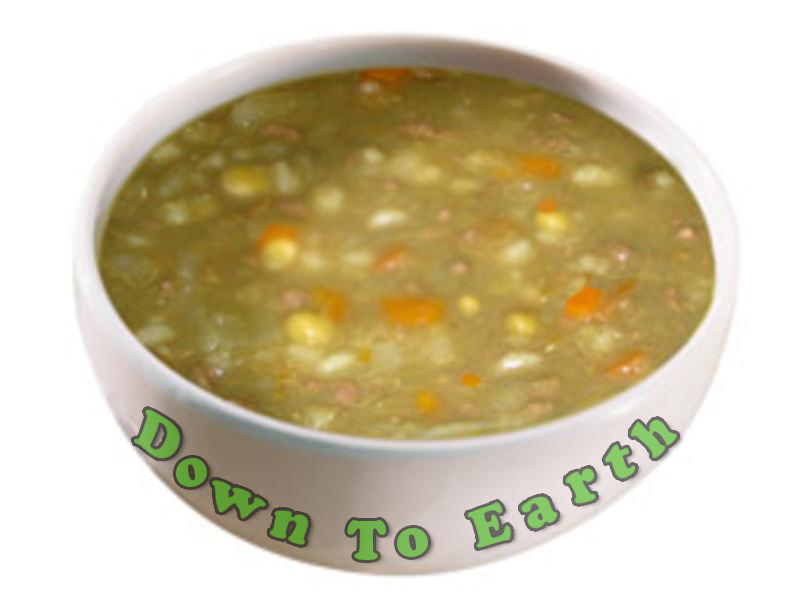 The secret of tasty Scotch broth is to cook it slowly over a long period of time – let the lamb, barley and vegetables mix and take on a wonderful warming taste. Slow heat on the hob, or even cook over a number of hours in a slow-cooker…
The secret of tasty Scotch broth is to cook it slowly over a long period of time – let the lamb, barley and vegetables mix and take on a wonderful warming taste. Slow heat on the hob, or even cook over a number of hours in a slow-cooker…
For this time of year, there’s nothing better than a warming plate of steaming Scotch Broth. A good Scotch Broth is a meal in itself, almost – but not quite a stew. Use the freshest vegetables you can find, coupled with a decent lump of mutton or lamb – opinions differ as to the preferable cut, but it does not need to be the most expensive – shoulder, neck or shin will do – even throw a few decent chops at it if that’s all you have!
Bear in mind that lamb tends to be one of the more fatty meats – skim some of the fat off when it gets to the top – or many people let the broth cool completely down, even leaving in the fridge overnight and skimming off the fat before heating again. To be honest I think a soup is often better the next day. Personally, whilst I’m into healthy eating and cooking – a bit of fat in the broth adds to the flavour, and there’s probably worse things to eat!
Scotch Broth Recipe Ingredients
2 litres water
750g of lamb or mutton, chopped into 4 or 5 pieces to fit into your pan
200g of potatoes, peeled and chopped small
225g of carrots, peeled and chopped small
225g of swede or turnip, peeled and chopped small
275g of leeks, trimmed, sliced and washed
200g of white cabbage or kale, chopped quite finely
1 medium sized onion, peeled & roughly chopped
1 stick of celery finely chopped
40g of pearl barley or dried broth mix
2 fresh bay leaves
plenty of freshly ground salt and pepper
1 small bunch of fresh parsley, stalks removed and finely chopped
Scotch Broth Recipe Cooking Method
Put the meat in to a large pot, or pressure cooker and cover with water. Bring the temperature up to the boil and simmer gently. You will see a fair bit of scum and froth that will come to the surface – remove this with a large spoon and discard. Continue simmering for about 30 minutes, removing the froth as it appears. Add all of the ingredients except for the cabbage, barley and chopped parsley. Bring back up to a gentle simmer, again removing the froth and scum as it appears on the top of the pan. Drop the heat down to the very lowest heat, cover and leave for a hour and a half or or so. This will cook the meat and the vegetables – giving a wonderful tender meat. If you have used meat on the bone, lift it out at this stage and remove the bone, and any grisly bits. Roughly chop up the meat and put it back into the pan. Add the barley and leave to simmer on a very low heat – check the cooking guide on your barley packet – some require overnight soaking, some just require to be cooked properly. After about 30 minutes, add in your kale or cabbage and continue to simmer for another 45 minutes. Your broth should be merging and thickening nicely now, give it the occasional gentle stir and cook until your barley is tender. Keep an eye on the broth, if it’s getting too thick add a little water. Be careful to keep your heat down low and not to burn the bottom of the pan.
Some people prefer to lower the amount of pearl barley in the recipe and use a couple of handfuls of broth-mix – a dried mix of pearl barley, red lentils, yellow split peas, green split peas and marrowfat peas. The great thing about this recipe is that there are no real hard and fast rules – go with the flow, chuck it together and enjoy!
Taste to see if seasoned correctly, serve with rough cut lumps of bread and enjoy, when cooled – put it in the fridge for tomorrow then enjoy it again!


